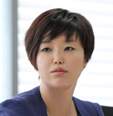The Middle East’s Neutral Stance towards the Ukraine War and Deepening Strategic Anxiety
Saudi Arabia and the UAE reject US requests
When Russia invaded Ukraine on February 24, many countries condemned it and joined the US-led sanctions against Russia, but the reaction of Middle Eastern countries was rather lukewarm. The United Arab Emirates (UAE), the only non-permanent member of the UN Security Council in the Middle East, abstained from a vote on the 25th UN Security Council resolution condemning Russia. In a statement on February 28, the Arab League called for dialogue to overcome the crisis without even mentioning Russia. Subsequently, Saudi Arabia and the UAE rejected participating in US-led sanctions against Russia and demands to increase their oil production.
Israel and Turkey emphasize dialogue with Russia
Israel and Turkey also emphasized a diplomatic solution without imposing sanctions against Russia. Prime Minister of Israel Naftali Bennett emphasized a “dialogue solution” in a statement regarding Russia’s invasion of Ukraine, while Foreign Minister Yair Lapid criticized Russia in a separate statement. Afterwards, Prime Minister Bennett made five phone calls with Russian President Vladimir Putin at the request of Ukrainian President Volodymyr Zelenskyy, who is Jewish, and on March 5, became the first foreign leader to visit Moscow since the outbreak of the war. Turkey also claims to be an objective mediator, and on March 10, invited Russian Foreign Minister Sergei Lavrov and Ukrainian Foreign Minister Dmytro Kuleba to Antalya, the southern city of Turkey, and held a three-way meeting with their foreign minister Mevlut Cavusoglu. Turkey has been exporting its own drones to Ukraine even before the Russian invasion of Ukraine. At the same time, Turkish President Recep Tayyip Erdogan offered President Putin a settlement of bilateral trade transactions in Russian rubles.
Iran stuck in a dilemma between the US and Russia
Iran supported Russia along with Syria immediately after the outbreak of the Ukrainian war. On February 24, Iranian Foreign Minister Hossein Amir-Abdollahian tweeted, “The cause of the war in Ukraine is a provocation by NATO.” At that time, Iran showed solidarity with Russia as a key partner in the ongoing negotiations to restore the Iran nuclear deal in Vienna.
But as Russia used the nuclear negotiations as a tool to circumvent sanctions against it, Iran found itself in a dilemma. Iran strongly protested against Russia, condemning the restoration of the nuclear deal being shaken by other foreign power. US Secretary of State Tony Blinken has drawn the line that Russia’s proposal is unacceptable because Russia’s sanctions and the Iran nuclear deal are unrelated. In the end, after a meeting between the Iranian and Russian foreign ministers, Russia said it hoped for a quick resumption of negotiations to restore the nuclear deal.
Egypt and other countries face a food security crisis
Egypt, Morocco and Tunisia, which import large quantities of wheat from Ukraine and Russia, have refrained from direct criticism of Russia and are closely monitoring changes in international food prices and supply chains. Most of these governments, which belong to authoritarian regimes, have used enormous state subsidies to adjust the price of bread and prevent public unrest. Meanwhile, citizens in the Middle East see a double standard in the international community’s outrage over Russia’s actions in Ukraine compared to Russia’s indiscriminate killing of civilians in Syria’s civil war.
Russia’s Growing Regional Influence after the Syrian Civil War
Russia’s growing influence in the Middle East and the diminishing role of the United States in the region are the backdrop behind which key Middle Eastern countries are maintaining a neutral stance between Russia and the US. President Putin decided to intervene in the Syrian civil war in 2015 to help the hereditary dictatorship of President Bashar al-Assad, who was clinging to power. Russia conducted massive airstrikes against both rebel fighters and civilians and provided extensive support of troops, mercenaries, and weapons. Russia opposed all 12 resolutions submitted by the UN Security Council to investigate the Assad regime’s human rights violations and use of chemical weapons. Even after overseeing 10 peace negotiations, President Putin has stepped out to restore the hereditary dictatorship of Assad. Unlike the sluggish UN-led negotiations, in the Russia-led negotiations, the government and rebels sat down for the first time and agreed to establish a constitutional committee, with Iran and Turkey actively participating. As President Putin determined the fate of Syria, neighboring Israel and Turkey have worked hard on relations with Russia. In Syria, the pro-Iranian militant group Hezbollah crosses the border to attack Israel, and Kurdish militia in the northeastern autonomous region are fighting Turkish forces.
For many countries in the Middle East that are mostly authoritarian regimes, Russia, where President Putin’s personal will determines foreign policy, is a more stable partner for inter-state cooperation and safeguarding their own regimes than the United States, which changes its policy in the Middle East whenever governments change. Above all, Russia’s support for the Assad regime during the Syrian civil war has strengthened the reputation of Putin as a keeper of promises.
The Declining US Role in the Middle East
The neutral reaction of major Middle East countries to Russia’s invasion of Ukraine is also due to the need for diplomatic diversification following the US’ ‘leaving the Middle East’ policy. Since the Barack Obama administration, the United States has promoted the Iran nuclear deal as part of preparations for the departure from the Middle East policy, declaring a pivot to Asia policy. In the process, the Obama administration rejected requests from Saudi, UAE, and Israel, who are key stakeholders in the nuclear agreement and US allies, to participate in the agreement. These US allies not only felt a sense of insecurity, but also complained that their positions were completely excluded from the Iran nuclear deal. The credibility of the United States further plummeted when the Trump administration shook the liberal order and the value of the alliance.
The Joe Biden administration made it a priority for foreign policy to restore the Iran nuclear deal, which the Trump administration had broken, and emphasized the reduction of its role in the region. Since then, the United States has removed the Iran-backed Yemeni Houthi rebels from the list of terrorist organizations and was reluctant to sell F-35 fighters to the UAE, which uses China’s Huawei 5G system. In particular, in February 2021, President Biden released a report from US intelligence agencies that identified the Saudi Crown Prince Mohammed bin Salman as the mastermind behind the murder of Saudi anti-government journalist Jamal Khashoggi in Turkey in 2018. The Iranian-backed Houthi rebels have continued to launch missile and drone strikes against Saudi territory, which has backed Yemeni government forces since the outbreak of the civil war in Yemen in 2014. The Trump administration designated the Houthis as a terrorist organization on the last day of his term in January 2021, but shortly after the Biden administration took office, it delisted the Houthis as a terrorist organization to facilitate negotiations to end the war in Yemen and to show a friendly gesture to Iran in negotiations to restore the Iran nuclear deal. On the other hand, Russia supported the UAE resolution on February 28 this year to designate the Houthis as a terrorist organization at the UN Security Council.
The Middle East Order after the Ukrainian War: Frustrations and Calculations in an Era of Uncertainty
As the struggle for the liberal international order intensifies over the Ukrainian conflict, the simmering strategic anxieties of key Middle Eastern states will be exacerbated by the deepening democracy-autocracy framing. In particular, the authoritarian regimes of the Middle East will seek to navigate their way between the geopolitical rivalry. These authoritarian countries see Russia as a stable partner to protect their regime, where Putin’s personal will determines everything rather than the US, where policies are rampant whenever there is a change of government. Authoritarian leaders in the Middle East will have a higher affinity for President Putin, who protects his country to the end, than President Biden, who stresses and presses democratic values and principles.
As the dynamics of regional restructuring become more complex, traditional US allies like Saudi Arabia, UAE and Israel will strengthen trilateral cooperation with each other. They will also keep up the outreach policies started this year, including improved relations with Turkey and moves towards détente with Iran by Saudi Arabia and the UAE. In addition, while developing friendly relations with Russia and China, they will also continue their efforts to acquire US weapons systems. Meanwhile, soaring international grain prices will increase the risk of national failure in food-security vulnerable countries such as Egypt, Morocco, and Tunisia.
The global confrontation between democracies and autocracies is intensifying, and it is giving way to an uncertain but changing Middle East regional order. In response, South Korea’s Middle East policy must continue to be guided by its status as a middle power and its support for democracy, human rights, free market economy, and nuclear non-proliferation. Since the 2010s, South Korea has gone past narrow economic interests to actively contribute to humanitarian aid, peacekeeping missions, as well as counterterrorism and anti-piracy operations. South Korea’s middle power diplomacy underpinned its Middle East policy and allowed it deepen cooperation with like-minded partners on the world stage. It also helped South Korea to look beyond Northeast Asia and contribute towards resolving tensions and crises in the Middle East. The newly inaugurated Yoon Suk-yeol administration has outlined a vision to be a ‘Global Pivotal State’ and upgraded the South Korea-US alliance into a global comprehensive strategic alliance in which South Korea plays a greater international role.
However, in the relationship with individual countries such as Saudi Arabia and the UAE, which are struggling in the values-based competition, it would be wiser to actively support the values of unpresented reforms and openness, rather than a value-oriented approach. Furthermore, Korea-UAE-Israel can pursue triangular cooperation for regional stability. In addition, in-depth humanitarian cooperation can be considered with Egypt, which we have selected as a key ODA partner.

 Facebook
Facebook Twitter
Twitter
